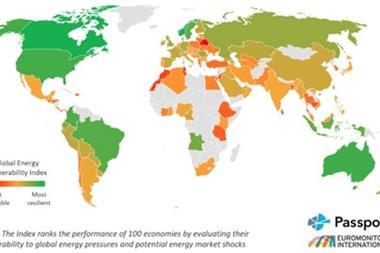They include the following.
MANAGING CROWD RISKS IN EMERGENCY PROCEDURES
Simon Ancliffe - Evacuation Strategies
Recent disasters around the world have shown the risks in moving crowds. Emergency procedures frequently involve evacuation or in-vacuation, and the crowd risks in these procedures are poorly understood and rarely assessed or controlled. This presentation will use video clips, photos, and simulations to show the hazards, and will present tools to control them. Risk managers who have responsibilities for buildings or areas in urban centres will be aware of the need to re-visit their risk assessments and enhance their emergency response system for terrorism, including changes to procedures, training, technology, and buildings.
MODELLING AND MANAGING REPUTATION
Mark Fletcher - Reputation
This session will allow delegates to look at how to model and manage their own reputation and consider how to assess and manage risk around it. The model may also be applied to organisations. Delegates will be able to look at how key stakeholders make judgements about them and how to enhance reputational value.
SENSIBLE RISK MANAGEMENT - STRIKING THE BALANCE
Steve Pointer - Health & Safety Executive
Good risk management is about managing risk, not trying to eliminate it altogether. Unfortunately this is often misunderstood - particularly by the media. Through research and debate, the HSE has suggested some core principles of sensible risk management. This session gives you an opportunity to discuss them and feed in your views.
REHABILITATION - MAGIC BULLET OR STICKING PLASTER?
Neil Fraser - Zurich Municipal
Rehabilitation has been seen by employers, insurers, unions and the Government as a positive way to help manage sickness absence and personal injury claims costs for several years now. Despite this positive response there is still relatively little rehabilitation in action.
Rehabilitation is more important now than at any previous time. Liability claim numbers may be falling, but the cost of the claims keeps rising.
In addition, absence and performance management are high on the local government agenda. This interactive workshop will explore the benefits, pitfalls and experiences of rehabilitation.
TAKE MORE RISK! USING RISK MANAGEMENT TO IMPROVE INNOVATION AND REDUCE THE BLAME CULTURE
Liz Taylor and Karen Dodds - Public Risk Management
Managing your reputation is both vital and difficult; without a good reputation you lose support for achieving all your key goals, and yet the risk can come from anywhere at any time with seemingly incalculable consequences.
This workshop will explore a simple tool that can be used as a magnifier for your risk registers, to get absolute clarity of the risk to your reputation, and break it down into its component parts so that you can allocate SMART action plans to specific people within the organisation. It will look at risk management of partnerships and procurement as part of this process, and participants will leave with clear methodology that will help them gain assurance of how to manage the reputation of the organisation.
DYNAMIC RISK ASSESSMENTS
Mike Keating - Belfast City Council, ALARM vice chairman
Dynamic risk assessments, in various forms, have long been used by emergency services such as police and fire, but should also be considered by those engaged in emergency planning or business continuity planning, where they can positively contribute to the decision-making process, can help enhance physical safety and protect against the risk of claims, and can contribute to effective legal compliance and/or defence. This session will cover how dynamic risk assessments may be used, and what form they may take.



















